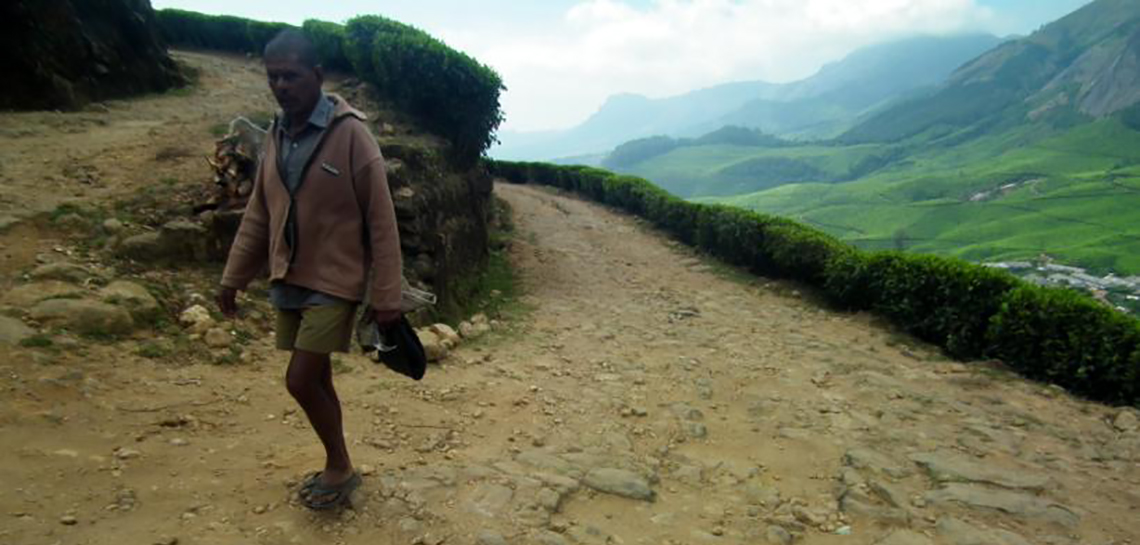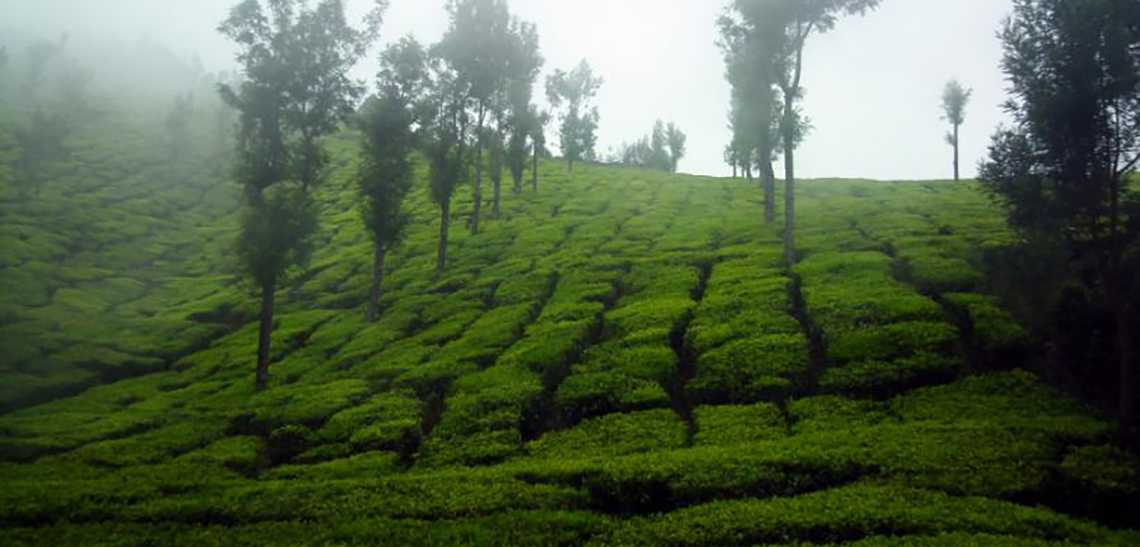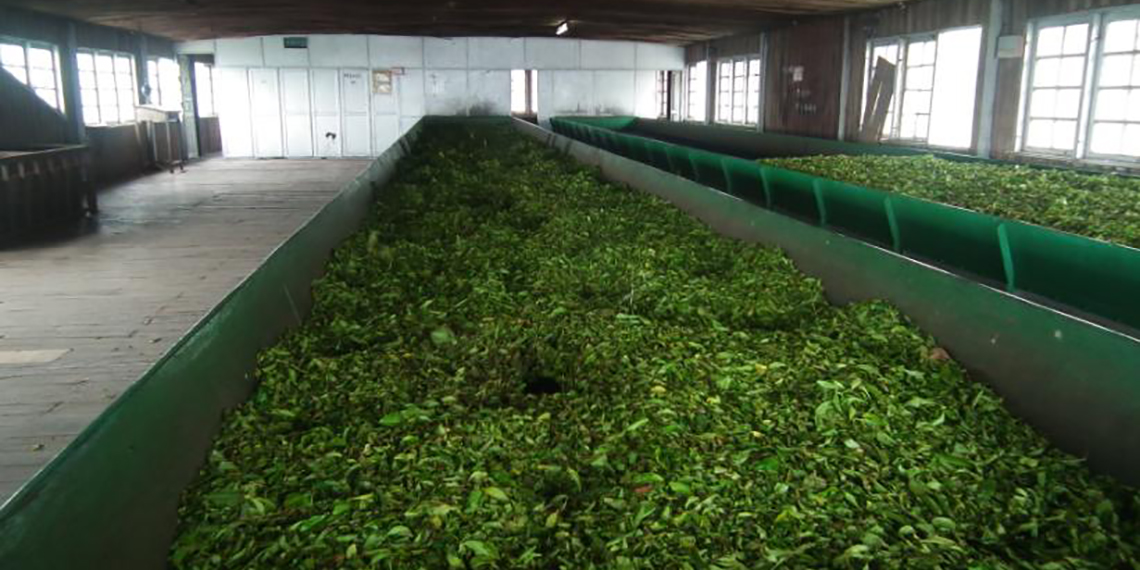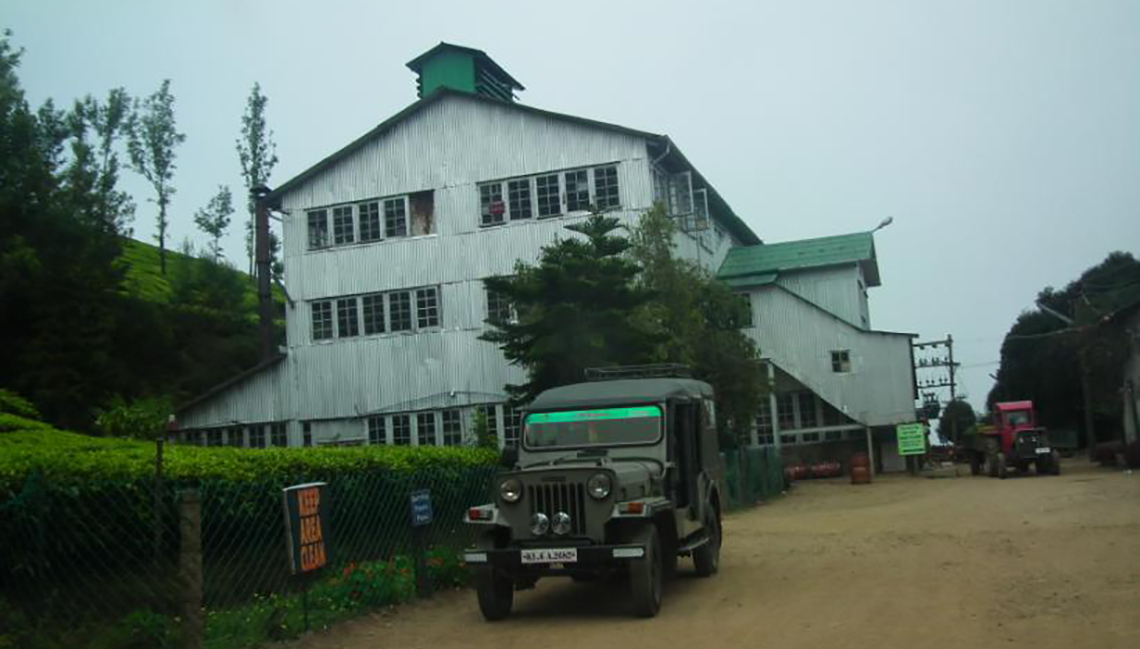Munnar Diaries Part 2 – Kolukkumalai : The world’s highest organic tea plantation
In the second part of her travelogue on Munnar, Shireen Bharucha takes us on a trip to Kolukkumalai, which has the esteemed pride of being the world’s highest organic tea plantation. Her description of her experience is so vivid that you could almost smell the tea leaves!
It is not surprising that on our very first morning we visit Kolukkumalai (loosely translated: kolu – big and malai – mountain) the world’s highest tea estate at over 8000 ft above sea level, which owns the region’s oldest tea factory established in 1930 by a Scottish planter. It boasts of the world’s highest grown orthodox tea.
Orthodox tea is handmade tea, which is either hand-processed or rolled with machinery which is similar to hand rolling. All whole-leaf tea is made by this method. Orthodox tea is opposed to CTC tea which is machine processed where tea leaves are chopped uniformly and used for tea bags. The tea here being organically grown, no chemical fertilizer is used. The waste generated from processing the tea leaves is recycled as fertilizer. Another unique aspect is that the plants are not watered as the benevolent embrace of a wet fog which engulfs the region provides enough moisture for the plants to thrive.
We set off with guide Jaya Shanker and jeep driver Ajith. Jeeps are the only mode of transportation to Kolukkumalai. We drive through the town of Suryanelli and then onto tea plantations owned by Harrisons Malayalam Ltd. through which a narrow, serpentine, stony and rocky dirt path with numerous hairpin bends leads to Kolullumalai. An entry fee of Rs.100/- for the vehicle is charged at this juncture.

The Path to Kolukkumalai Munnar
The colours I associate Munnar with in January are green and red – the soothing green of the tea gardens edged by ferns and the blazing red of Poinsettia which are in full bloom and line most of the tea gardens as also the red of the pretty Indian Coral which dots the hillsides.
The scenery is spectacular, as the path winds along the steep slopes of undulating tea gardens and high-altitude shola forests of eucalyptus and pine.
The homes of the tea garden employees nestle among the gardens which are encircled by majestic mountains.
Colourfully attired women carrying baskets on their backs shear tea leaves, rather than pluck them. Each worker collects 25-30 kilograms of leaves per day. One kilogram of black tea is obtained from four kilograms of green leaves. The tea bushes are interspersed with thickets of eucalyptus. Jaya explains that this is done, as the eucalyptus stores water during the rainy season and releases it during dry weather.
As we climb higher, the bone-rattling drive becomes scary. The lovely scenes vanish from sight as a heavy, ice-cold and clammy fog descends reducing visibility to almost zero! However I do spot the biggest, fattest and wooliest sheep grazing on the hillside! When confronted by a vehicle coming from the opposite direction, maneuvering on this one-lane path proves a challenge as the slightest error of judgement can be fatal. Ajith passes the test with distinction!

Kolukkumalai Tea Garden In the Fogs
We finally come to a board saying “Now ‘U R’ at 7130 ft.”, from where the Tamil Nadu-Kerala border can be seen on a clear day, but the fog plays spoilsport! From here we drive downhill to the factory. The 20 km drive from Chinnakanal has taken over an hour, inclusive of the time we stop to shoot some photographs.
Jaya ushers us into the manager’s charming little office, the exterior covered with ivy. We welcome the hot cup of aromatic, fresh tea that Jaya hands us, for Rs.10/-. A factory tour costs Rs.100/- per person. We are assigned a guide but Jaya accompanies us as our interpreter.
The factory with its fully wooden interiors exudes an old world charm. The entire process – withering, rolling, sieving, fermenting, drying, fibre extraction and grading – all done by age-old machines, as also the furnace fired by wood, and finally, the room where the tea is manually weighed and packed is shown. A variety of teas are sold at the outlet attached to the factory.

Kolukkumalai Tea Estate managed by the Kottagudi Plantations was awarded the Golden Leaf Award by the Tea Boards of India and USA for its excellent quality of tea in 2005.

Kolukkumalai Tea Factory Munnar
Will we brave the horrendous ride to Kolukkumalai again? For the gorgeous scenery and the drama of the mist and fog, we will, with the hope that we might see the panoramic views from the top, which we miss on this trip.
After enduring this tough ride, relaxation is called for. We do just that by exploring Munnar’s cultural side in the evening.
To know more about Munnar and its cultural side, click here to read Part 3 of Shireen Barucha’s extensive Munnar travelogue. If you are looking to visit any other hill stations In India, read our blog on Hill stations in North India and Hill stations in South India to get an idea about India’s hidden treasures.
Quick Links
Part 1 – A portfolio of Munnar
Part 2 – Kolukkumalai : The world’s highest organic tea plantation
Part 3 – Kerala’s oldest martial art: Kalaripayattu
Part 4 – Munnar – discovering history
Part 5 – Here, there and everywhere
The views expressed by the author are in her personal capacity.

